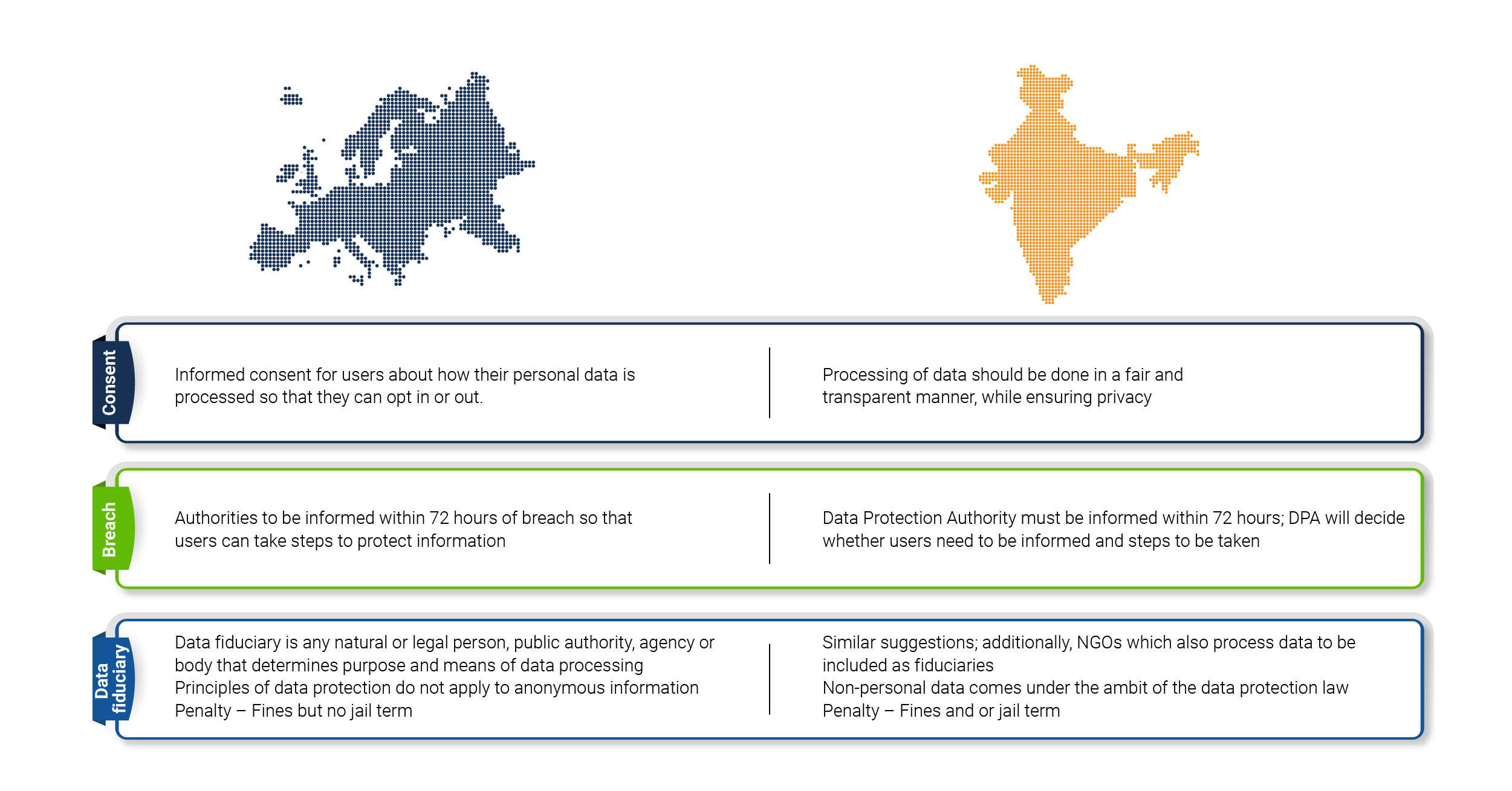Ankita Tyagi | 30th June 2022

We are more connected than we have ever been before. Today almost three-quarters of the world’s population uses the mobile phone and digital devices. 9 In the digital age, data is being created, aggregated and consumed at a frenetic pace. Almost 90 per cent of the data of the world was generated in the previous four- five years. With more data being available and collected, everyone stands to gain from greater transparency, more convenience and better monitoring, but it also throws up the challenge of data privacy and data security.
In January 2012, the European Commission set out plans for data protection reform across the European Union in order to make Europe fit for the digital age. Almost four years later, agreement was reached on what that involved and how it will be enforced as the General Data Protection Regulation (GDPR). GDPR is a regulation in EU law on data protection and privacy for all individuals within the European Union (EU) and the European Economic Area (EEA).
In India the electric two-wheeler segment has seen a significant growth in 2020-21 with, a 65 per cent increase in electric two-wheeler registrations. In India, 16 states now have either a notified or a draft public EV policy aligned with the electrification target of the nation. To achieve the objectives stated in these policies, many states are also offering fiscal incentives to the buyer in addition to a central government incentive scheme called FAME. The two-wheeler segment presents increased consumer willingness to shift to electric than any other segment due to the easy charging options that come with smaller battery packs. Most electric-wheelers sold in India can be charged by 15 ampere electrical sockets available in every Indian residence.
At its core, GDPR is a new set of rules designed to give EU citizens more control over their personal data. It aims to simplify the regulatory environment for business so both citizens and businesses in the European Union can fully benefit from the digital economy. GDPR applies to any organisation operating within the EU, as well as any organisations outside of the EU which offer goods or services to customers or businesses in the EU. Hence, Indian companies operating in Europe need to understand and implement GDPR, at the same time they also need to understand and be compliant with India’s Personal Data Protection Bill (PDP). For the past five years, India has been on a journey to create a comprehensive data protection law. While the law has not yet been passed, it has been updated several times based on feedback from various stakeholders. Like the GDPR, the PDP aims to protect the personal data of Indian citizens. It does this by:
However, forward looking organizations are already anticipating these changes and have taken proactive steps in creating their digital frameworks to be privacy first. At EBTC, we have already taken stpes to review our existing policies in wake of GDPR compliance and appointed a DPO( Data Protection Off)

traversing, INDIA, EU